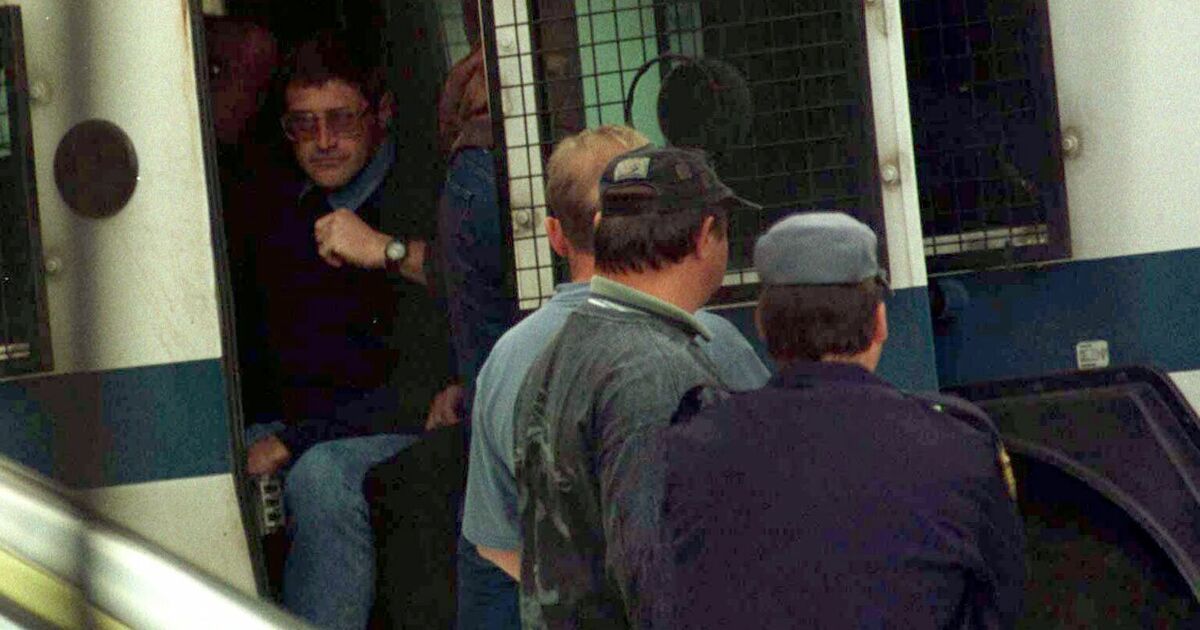The Government banned a notorious South African police chief and paramilitary executioner from entering the country in 1994 amid fears he would move to Ireland following the collapse of the apartheid regime.
Nicknamed “Prime Evil”, Colonel Eugene Alexander de Kock had led brutal paramilitary operations against opponents of the apartheid regime, including members of the African National Congress (ANC).
Secret files released by the National Archives under the 30-year rule show the decision to ban de Kock from entering the country stemmed from Garda intelligence that suggested he planned to travel to Ireland after being denied entry to the UK.
De Kock had earned his nickname from his brutal legacy, which included leading the paramilitary squad C10, which tracked down and killed a number of ANC leaders as well as co-founding the Koevoet unit which targeted Namibian nationalists.
A memo prepared for the minister for justice, Máire Geoghegan-Quinn, in April 1994 on the exclusion order preventing de Kock from entering the State outlined the grave concerns about the South African police official.
It noted South Africans did not require a visa to enter the Republic.
“This means, in real terms, that Col de Kock could arrive at an Irish port or airport unannounced and seek admission for a short visit to the State of up to three months,” an official observed.
He added without an exclusion order, the decision to admit him could rest with an immigration officer who would “obviously not know of Col de Kock’s colourful background”.
De Kock had recently been given early retirement following serious criticism by the Goldstone Commission, which was established to investigate serious allegations of criminal political violence by elements within the South African police force and within political parties.
The memo noted Col de Kock had already been excluded from the UK in August 1993 “on the grounds that the British authorities were satisfied he was involved in terrorist activities”.
The author noted: “My information is that he is alleged to have been involved in an attempt to assassinate his predecessor.”
Irish officials noted Col de Kock could be the focus of prosecutions as South Africa moved from the apartheid regime to full, inclusive democracy.
It was recorded that security authorities feared de Kock, despite being discharged from his police role, remained involved in covert “third force” destabilisation activities as South Africa transitioned to democracy.
Complicating matters, his wife had already sought political asylum in Ireland, claiming threats to her family due to her husband’s notoriety.
The memo read: “Last week, she filed an application for political asylum with the Department of Justice on the basis that her life, and those of her children, are under threat as a result of the alleged activities of her husband.”
De Kock was later sentenced to 212 years in prison for his role in South Africa’s “apartheid killing machine”. He served nearly 20 years before being paroled in 2015 by the ANC government — ironically, the same group he once targeted. His release, one day after his 66th birthday, was described as an act of “nation-building”.
De Kock testified on a number of occasions before South Africa’s Truth and Reconciliation Commission, admitting to numerous atrocities.
His confessions, which shocked the international community, offered a harrowing glimpse into the violent extremes of the apartheid regime.
South African psychologist Pumla Gobodo-Madikizela interviewed de Kock multiple times while he was in prison, documenting his remorse and requests for forgiveness in her acclaimed book, A Human Being Died That Night.
Despite his contrition, many victims’ families refused to forgive him, citing the brutality and duration of his crimes.
